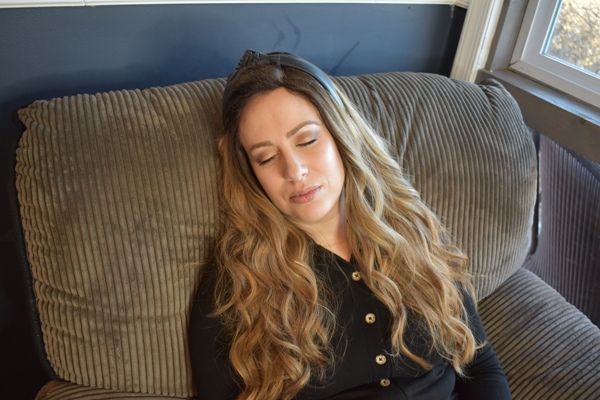
- Eat for energy!
When you hit that afternoon slump, don’t grab a Snickers bar! While sugary snacks can give you a temporary energy boost when your blood sugar spikes, once your insulin kicks in and sends your blood sugar tumbling, you will end up more fatigued than you were before you ate the sugary food. Add in the cravings, shakiness, and fuzzy-brain feeling from this insulin rollercoaster, and you have lots of reasons to snack smarter.
Pick snacks with protein and complex carbs like:
banana + peanut butter
lettuce + turkey
nuts + raisins
hummus + baby carrots
cottage cheese + berries
2. Figure out how much sleep is optimal for you.
The recommended amount of good quality sleep for adults is 7-9 hours per night. However, sleep needs can vary significantly among individuals due to a number of factors (age and sleep quality, for example).
Keep a record for a week of how much sleep you get each night and how you feel the next day, in terms of energy level and focus. Also note the quality of your sleep. Ask yourself the following questions at the end of each day: What time did you go to bed the night before? What time did you wake up? How many times did you awaken last night? On a scale of 1-10, what was your energy level today? Look for patterns in the quantity and quality of your sleep. If you get more or less quality sleep than you actually need, you may feel sluggish and less focused.
A few natural supplements to help with sleep are magnesium, nighttime teas like Tension Tamer and Sleepytime by Celestial Seasonings, melatonin, chamomile, and lavender.
3. Have a bedtime routine.
We do this with kids, right? A child’s bedtime routine may include giving them a snack, having them brush their teeth and take their vitamins, and reading them a story, then it’s quiet time and lights out. We do this for them because we know they need a transition time between being busy kids by day and relaxed, sleepy kids at night. We are no different. In fact, because our daytime stress levels are much higher than our children’s stress levels (we hope!), a bedtime routine becomes even more critical.
Pick a time about an hour before lights out when you shut down your phone and computer. Create a routine that relaxes you—read, stretch, take a bath, have a tea and flip through a magazine, hang out and talk with family in your PJs, or do an evening meditation (check out the Calm app if you have a smart phone).
4. Exercise!
Exercise almost always guarantees that you’ll sleep more soundly. It calms the mind and improves productivity during the day. It also gives your cells more energy to burn and circulates oxygen. If that isn’t enough, exercising causes your body to release epinephrine and norepinephrine, stress hormones that, in modest amounts, can make you feel energized. Even a brisk walk is a good start.
5. Use caffeine to your advantage.
Caffeine does increase alertness, so having a cup of coffee can help sharpen your mind. But to get the energizing effects of caffeine, you have to use it judiciously. It can cause insomnia, especially when consumed in large amounts or after 2 p.m. For sensitive individuals, it can also create a drain on the adrenal glands and leave you feeling wiped out after the initial kick is gone.
6. All work. No play.
Acting like a serious, responsible adult is exhausting. All those routines, dripping with monotony, can get tedious. And your body registers boredom as tiredness. Build in a bit of pleasure throughout your day—dance in your living room, flip through a magazine, call a friend, daydream, waste time, play Twister with your kids, listen to upbeat music and play it while you’re carpooling. Instead of bogging you down, mini breaks will buoy you and make your routine a little less routine.
7. Drink water!
When you feel thirsty, you’ve already lost 2-3% of your body fluid. Even this mild dehydration can make you feel tired or lethargic—your blood volume lowers, which means you don’t get as much blood to your brain, and your heart has to pump harder. Aim for drinking half of your body weight in ounces every day! To make plain water more appealing, add lemon or orange wedges, or make a Thermos of herbal (non-caffeinated) tea. Having a hard time drinking water? Increase your water intake by eating more soup, fresh fruits, and vegetables.